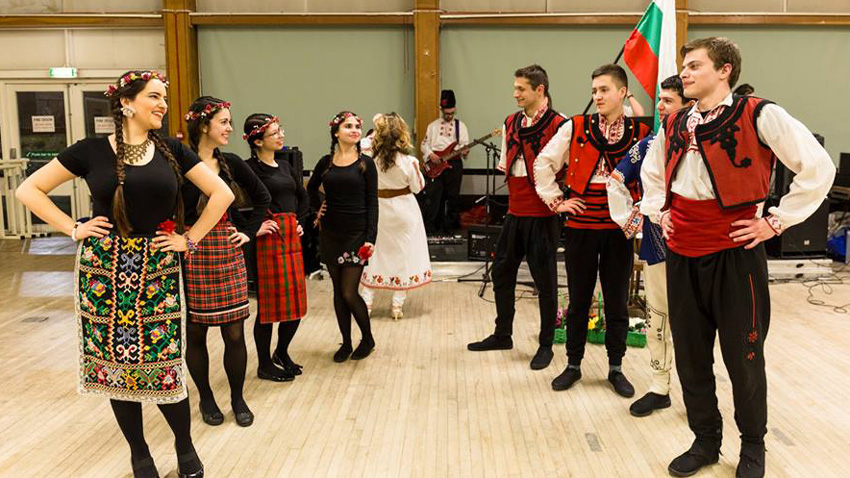Many Bulgarians opt for studying and/or working abroad. Some of them return here, others prefer to stay away from home. However, no matter the exact spot on the world map, it’s always good to find something Bulgarian, something close to our heart in this place - For instance, in Aberdeen – Scotland’s third largest city, where Bulgarian students keep up the traditions, spirit and culture of this country. Folk dances, music, clothing, chef’s nights and lots of smiles unify our compatriots in Aberdeen, making them feel at home.
Chair of Aberdeen University Bulgarian Society for the past year Nikola Lazarov tells us more about them. He studies computer sciences in the university there, saying that after gathering some post-graduate experience he would like to return to Bulgaria.
“The Bulgarian community in Aberdeen is unique. The university is really good and education is free, which attracts plenty of Bulgarians. Our community does help our compatriots here. We organize various events, starting with a meeting with freshmen at the opening of the academic year. Then we have these Bulgarian folk dances events and we are really proud of those, as the Bulgarian spirit and culture can be strongly felt there…”
The committee of the community also organizes meetings of the Bulgarians in Aberdeen, where the participants discuss how they can contribute to the development of their motherland – for instance, how and where they can vote on forthcoming polls. “It is really beautiful to see all these Bulgarians united in Scotland,” Nikola says and adds:
“We had this show for March 3rd (Bulgaria’s National Day), where 10 people had prepared incredible choreography. We won a scholarship from the university for the purchase of Bulgarian traditional clothing and the Scots remained astonished. Our Balkan party is one of the major events here. It is visited by the greatest number of people: we had some 300 guests from Bulgaria, Greece, Romania etc. We also have weekly jam sessions with Bulgarian songs and dances. All the money collected is donated for charity. We want to show that together we can have fun and do something good.”

“There are many foreigners who attend our folk dance lessons. Many come to the Bulgarian parties for the pretty Bulgarian women,” Nikola says with a smile and adds: “They all find our traditions beautiful and interesting. Some of them haven’t even heard of Bulgaria – there was this girl who thought that it was an island to the South of Spain…”
As there are places around the globe which can’t boast with a purely Bulgarian spot, Nikola sends the following message:
“I would say that: If you don’t have a Bulgarian community, do create one! The feeling is unique – being abroad, but feeling at home. I feel good when I know that I can attend Bulgarian dances and song performances at any time. The community has helped me a lot. If you don’t establish your community, at least find the Bulgarians in the region and communicate with them. Don’t lose what’s Bulgarian in you!” Nikola Lazarov says in conclusion.
English version: Zhivko Stanchev
Every Bulgarian school abroad has its own story, and that of the Rodna Stryaha Bulgarian school in Cyprus began in 2015. Its foundations are built on the dream of a Bulgarian teacher - when one day Bulgarian children decide to return to their..
President Rumen Radev will today attend the opening ceremony of Forest Week in front of St Alexander Nevsky Cathedral. The theme of this year's celebrations is "A century of eternal creation, preservation and care!" This year marks the 100th..
For 100 years, foresters in Bulgaria have been organizing Forest Week. A concert entitled “A century of eternity” on 7 April will give the official start to the initiative dedicated to the planet’s lungs. And though it has been a century since..
Looking and feeling your best doesn’t have to come at a high price — especially in Bulgaria. The country has become a rising star in beauty tourism,..
Residents and visitors to Sofia will have the opportunity to learn more about Bulgarian scientists working in Antarctica and their important role in the..
The prices of Easter goods are rising The Easter meal in the Balkan countries will be more expensive this year, BTA reports...

+359 2 9336 661
